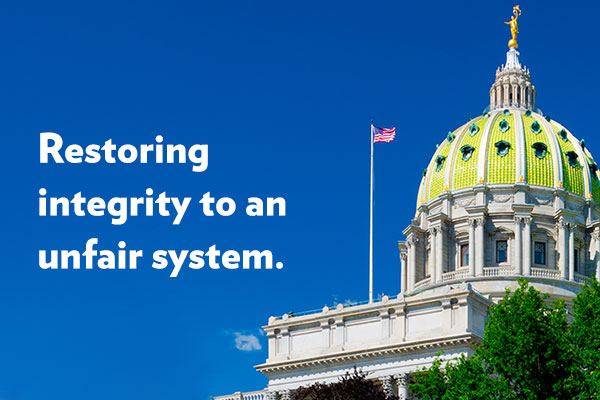Media

Advancing Workplace Freedom For Public Employees
Efforts to enhance public sector workplace democracy has gained momentum in the Pennsylvania legislature.
In Janus v. AFSCME, the Supreme Court restored workers’ freedom to stop paying fees to unions they didn’t join or support. Two new state House bills would further enforce and expand on this win for workers.
Secret ballot strike authorization
Rep. Cris Dush recently introduced House Bill 2586, which requires a majority of all public sector employees in a workplace to authorize strikes via a secret ballot vote.
Currently, the Public Employe Relations Act permits strikes for certain workers during a collective bargaining impasse, yet the law lacks parameters for authorizing or administering a strike. Many unions establish their own rules, which frequently exclude non-union workers from voting for or against a strike.
A former public sector union member, Rep. Dush recently explained why it’s important for all employees, not just union members, to support a strike decision:
I’m concerned about financial fallout on people who are both union members and non-members when possibly only a small number of union members make the decision.
HB 2586 creates consistent, statewide guidelines allowing all employees to vote via secret ballot on measures directly impacting their workplace—enhancing the voices of all workers impacted by a strike.
Scaling back union resignation restrictions & employee notification
Though Janus protects public sector workers from unwillingly funding a union, many members are still forced to do so because of restrictions on the union resignation process.
Currently, Pennsylvania law includes a “maintenance of membership” provision prohibiting workers from resigning union membership until a 15-day window at the end of a multi-year contract, if they file the right paperwork and follow specific procedures. In effect, workers must continue, for months or years, funding an organization they don’t support.
Making matters worse, many workers are unaware of their Janus rights and the burdensome resignation process.
Rep. Fred Keller’s House Bill 2593 would take a step toward addressing this issue. The legislation includes several reforms:
- expands the resignation period from 15 to 45 days prior to a contract’s expiration;
- requires unions to notify workers every January of their right to resign within the 45 day window;
- requires unions to notify workers of their resignation rights within 10 days of the contract expiration date.
Rep. Kate Klunk has also introduced legislation—House Bill 2571— to ensure all workers know of their newfound Janus rights, aligning Pennsylvania law with the Supreme Court decision.
Union Voting Rights
Meanwhile, Rep. Seth Grove also intends to introduce legislation ensuring workers can regularly vote on their union representation—a process an astounding 99 percent of public employees have never enjoyed.
By continuing to promote these reforms, state lawmakers can demonstrate they believe Pennsylvanians deserve more, not less, workplace freedom.